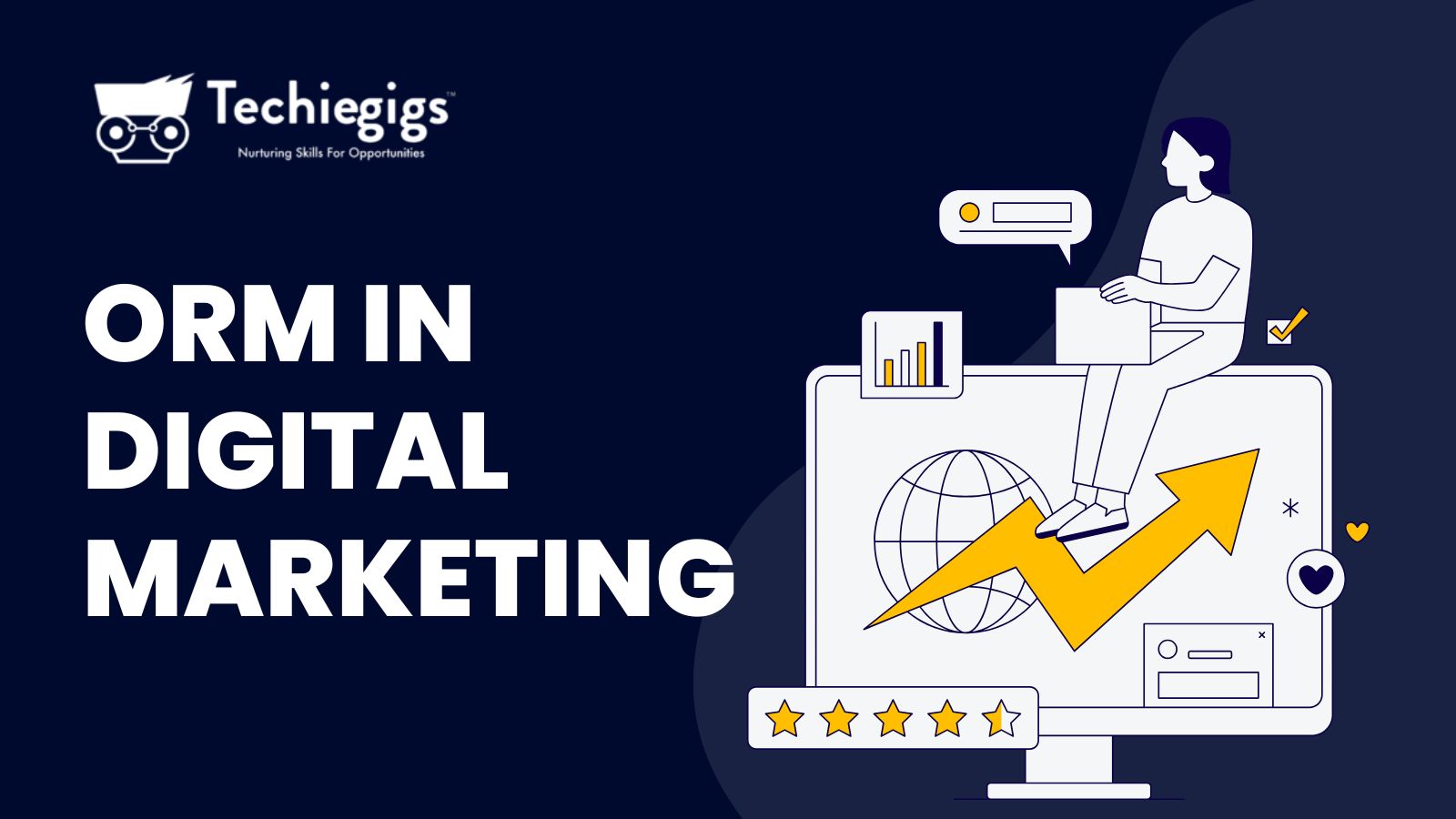ORM in Digital Marketing: Build a Strong Reputation
ORM in Digital Marketing, or online reputation management, plays a pivotal role in today’s hyperconnected world, where a single tweet or review can go viral within minutes. Far from being just a buzzword, ORM is a strategic approach to ensuring your brand is represented positively online while minimizing risks from negative content.
Table of Content
What is ORM in Digital Marketing?

It refers to the practice of monitoring, analyzing, and influencing your online reputation to shape public perception positively. It encompasses various strategies and tools aimed at addressing negative feedback, promoting positive content, and ensuring that your brand’s online persona aligns with its values and mission.
Your online reputation is the sum of what people say, feel, and think about your brand on the internet. ORM ensures that this perception works in your favor rather than against you.
Why is ORM in Digital Marketing Crucial?
- First Impressions Matter In the digital age, potential customers often form their first impressions based on search engine results, social media profiles, and online reviews. A single negative review or outdated blog post can deter them from engaging with your brand. ORM helps you take control of these first impressions.
- Trust and Credibility A strong online reputation fosters trust among your audience. When people see positive reviews, testimonials, and professional interactions online, they are more likely to engage with your brand.
- Competitive Advantage In a crowded marketplace, your online reputation can set you apart. Brands that actively manage their reputation often enjoy a competitive edge over those that neglect it.
- Crisis Management No brand is immune to criticism or negative publicity. ORM equips you with the tools and strategies to address such issues proactively, minimizing potential damage to your reputation.
The Building Blocks of ORM in Digital Marketing

1. Monitoring Your Online Presence
Effective ORM starts with listening. Regularly monitor search engine results, social media mentions, and online reviews to stay updated on what’s being said about your brand.
Tools for Monitoring:
- Google Alerts
- Social media listening tools like Hootsuite or Sprout Social
- Review management platforms such as Yelp or Trustpilot
2. Responding to Feedback
Addressing both positive and negative feedback is critical. While thanking customers for positive reviews fosters goodwill, addressing complaints shows that you value your audience’s concerns.
Tips for Effective Responses:
- Stay professional and empathetic.
- Avoid defensive or dismissive language.
- Provide solutions and follow up to ensure customer satisfaction.
3. Creating Positive Content
Publishing valuable, engaging content is an excellent way to push negative results down in search rankings. Blog posts, case studies, and customer testimonials can enhance your brand’s image.
4. Leveraging Social Media
Social media platforms are a double-edged sword. While they can amplify negative sentiments, they also provide an opportunity to engage with your audience directly. Regularly update your profiles with relevant content and interact with your followers to build a strong online community.
5. SEO and ORM Integration
Search engine optimization (SEO) is an integral part of ORM in digital marketing. By optimizing positive content for keywords related to your brand, you can ensure that favorable content ranks higher than negative or irrelevant information.
Best Practices for ORM in Digital Marketing

- Be proactive. Don’t wait for a crisis to manage your online reputation. Establish an ORM strategy and continuously monitor and optimize your digital presence.
- Encourage Positive Reviews Happy customers are often willing to share their experiences if prompted. Encourage satisfied clients to leave reviews on platforms like Google My Business, Yelp, or industry-specific review sites.
- Address Negative Feedback Promptly Ignoring or delaying responses to negative reviews can exacerbate the problem. Acknowledge the issue, apologize if necessary, and provide a clear resolution.
- Invest in Employee Advocacy Your employees can be your biggest advocates. Encourage them to share positive stories and updates about your brand on their social media channels.
- Collaborate with Influencers Partnering with influencers who align with your brand values can significantly enhance your online reputation. Their endorsements can add credibility and widen your reach.
Real-Life Examples of ORM in Digital Marketing
The Starbucks Example:
In 2020, Starbucks faced backlash over a controversial policy regarding employee attire. The company promptly addressed the issue by clarifying its stance and taking corrective actions. Their swift response helped mitigate the backlash and reinforced their commitment to inclusivity.
Domino’s Pizza Turnaround:
Years ago, Domino’s Pizza faced criticism for the quality of its products. Instead of ignoring the feedback, they launched a campaign acknowledging the criticism, revamping their recipes, and actively seeking customer feedback. This transparency and willingness to improve earned them widespread praise and loyalty.
Benefits of ORM in Digital Marketing
- Increased Customer Trust Brands with a positive online reputation are more likely to gain customer trust, leading to higher engagement and conversions.
- Enhanced Brand Loyalty When customers see that a brand listens and responds to their concerns, it fosters a sense of loyalty.
- Improved Search Engine Rankings A strong ORM strategy often results in higher search engine rankings for positive content, making your brand more visible to potential customers.
- Higher ROI Investing in ORM reduces the risk of losing customers due to negative publicity, ensuring better returns on your marketing efforts.
The Future of ORM in Digital Marketing

As technology evolves, ORM strategies will become increasingly sophisticated. Artificial intelligence and machine learning will play a significant role in sentiment analysis, predictive reputation management, and personalized customer engagement. Staying ahead of these trends will be crucial for businesses aiming to maintain a stellar online reputation.
Conclusion
In a world where online perceptions can make or break a brand, ORM in digital marketing is not optional—it’s essential. By actively managing your online reputation, you can build trust, enhance credibility, and foster long-term loyalty among your audience. Don’t wait for a crisis to take action; start prioritizing your online reputation today.
Ready to Transform Your Online Reputation? Take the first step towards a stellar online presence with our expert ORM services. Contact us today and let us help you build a reputation that reflects your brand’s true potential. Your audience is waiting—make every interaction count!

